How to Fix a Household Crisis
by Rob Dietz
Economics is a field in crisis. The failure to prevent or even predict the global financial meltdown is a sure sign of this fact. Over the last few decades, a number of body blows have dented the credibility of mainstream economists. But the utter failure to foresee the financial fiasco was like a Muhammad Ali knockout punch to the jaw. The crisis of credibility is due to the disconnect between what’s happening in the real world and what’s offered in the classroom and economics journals. For confirmation of the disconnect, witness the Dynamite Prize dished out by the Real-World Economics Review to “honor” those economists most responsible for blowing up the global economy.
Not to be outdone, ecology is also a field in crisis. This crisis, however, is not about credibility. Instead, ecology’s crisis stems from the seemingly insurmountable nature of the problems faced by its practitioners. Imagine going to work each day and having to confront mounds of malaise-inducing evidence of ecological decline, from species extinctions to habitat loss to climate destabilization (just to name a few). It’s a testament to their dedication that they even show up for work. Many who do show up tend to focus on localized problems or minor information gaps as entire ecological systems crumble around them. Who can blame them? It’s daunting and maybe even depressing to walk out on the tracks and try to stop a train that’s bearing down at full speed. So instead, they work on a small section of track, hoping to keep the train from derailing for a bit longer.
Wordsmiths will recognize that the names of these two crisis-riddled fields share a common root – oikos, the Greek word for household. So basically, our entire household is in a state of crisis, and it’s threatening the health of the family, the cat, the dog, the yard, and the whole neighborhood. When there’s a serious problem in your household, the best course of action is to figure out the cause of the problem, make a plan to address that cause, and take concrete steps to implement your plan.
Step 1 – Figure out the cause.
The cause of the crisis in our two “households” is the pursuit of perpetual economic growth. From the ecological perspective, the household cannot thrive if its support structure is always under pressure to provide increasing resources for a growing economy. Unsustainable liquidation of natural resources to produce ever more stuff is no way to run a household. From the economic perspective, the household will fall if it is built on a faulty financial foundation. In a financial system that requires exponential growth, claims on wealth (money) will inevitably surpass the availability of real wealth (actual goods and services), and a collapse is bound to follow. Societal commitment to growing a bigger economy, including the commitment to a financial system geared for such growth, is the root cause of the ecological and economic crisis.
Step 2 – Make a plan.
For their part, economists will have to recognize and accept the inevitable limits to growth, and get to work on the institutions and policies needed for a prosperous steady state. Ecologists will have to get more involved in economic affairs and be prepared to inform policy makers about the best scientific information on resource resilience. Such shifts within the disciplines of economics and ecology will require professors to teach different material, students to get a broader education, and practitioners to collaborate with one another. These are huge shifts that call for the two households to break down some walls and unite under one roof. Fortunately, Herman Daly, Robert Costanza, and plenty of other inspiring thinkers have given us a substantial start on building the combined household of ecological economics. There has been a tendency to think of ecological economics as a sub-discipline or specialty of economics, but that is entirely inadequate for addressing the root cause of the crises. We need to think of ecological economics as an evolution of the two disciplines – an integrative game-changer.
Step 3 – Take concrete steps.
Organizations that support ecological economics and the steady state are on the rise, but make no mistake – such groups can hardly be considered mainstream. CASSE is a tiny organization compared to the anachronistic Club for Growth. The U.S. Society for Ecological Economics doesn’t have the clout of the American Economic Association. Let’s make CASSE more influential than the Club for Growth. Let’s make the USSEE more influential that the AEA.
When we increase our members and solidify our base of support, we’ll have the political power to begin turning concepts from ecological economics into policies. Then we can commence the tough job of repairing our household. We’ll get the family into counseling. We’ll take the cat and dog to see the vet. We’ll tear up the ornamental grass in the yard, restore some habitat and plant a garden. Pretty soon the neighborhood will feel like a community shared by all who live there.
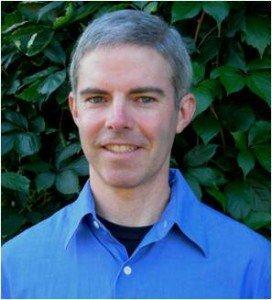 Rob Dietz brings a fresh perspective to the discussion of economics and environmental sustainability. His diverse background in economics, environmental science and engineering, and conservation biology (plus his work in the public, private, and nonprofit sectors) has given him an unusual ability to connect the dots when it comes to the topic of sustainability. Rob is the author, with Dan O’Neill, of Enough Is Enough: Building a Sustainable Economy in a World of Finite Resources.
Rob Dietz brings a fresh perspective to the discussion of economics and environmental sustainability. His diverse background in economics, environmental science and engineering, and conservation biology (plus his work in the public, private, and nonprofit sectors) has given him an unusual ability to connect the dots when it comes to the topic of sustainability. Rob is the author, with Dan O’Neill, of Enough Is Enough: Building a Sustainable Economy in a World of Finite Resources.
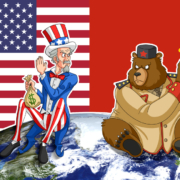
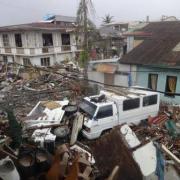
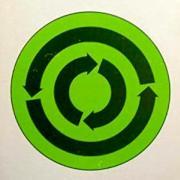
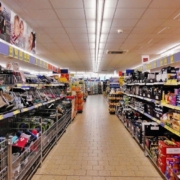
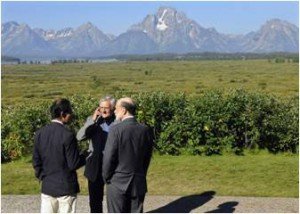
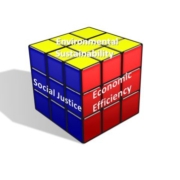
I completely agree that our current economic system is unsustainable. Even as I kid I remember thinking how strange it was that our economy relies on constant growth and ever increasing consumption of resources. It just never made sense.
However, try telling the average person on the street or a friend or family member. It’s like bringing up the problem of household trash and how it doesn’t make sense to keep producing ever more and filling landfill after landfill. People will say: “Yeah, it doesn’t make sense” or “What else can we do” followed by: “Someone will figure out a better way and they’ll fix the problem”
People are frozen by the system. If t’s a big enough problem “someone” will figure it out and fix it. And the fix never comes. Just more of the same.
I find no one wants the truth. They just want to keep on going the way they have their whole life. The problems we face now are so enormous that we are like deer in the headlights, or oblivious to the problems altogether.
If you are one of the enlightened ones then please talk about it with everyone you know. The more we are aware of the problem the better the chances of fixing it.
“The cause of the crisis in our two “households” is the pursuit of perpetual economic growth. ”
While I agree that “growth” is an essential cause, as a scholar and activist I suggest that steady staters look first at additional elements in the chain of cause and effect. If we look at “growth”´s philosophical and psychological basis in reality, we run into attitudes related to profit maximization and anti-environmentalism. Linguists Ogden and Richards once wrote a book, The Meaning of Meaning, which gives some insight into this kind of thinking. Noam Chomsky himself is known to some, and is a linguist, for one. Hume also discussed this basis of concrete perceptions to abstractions, and Eliot Chapple is another in Anthropology and Biology.
If we see growth as one manifestation, then examine the behavior of corporations for their profit concerns and consumers for their buying concerns, we can identify the important contributions of acitivists like Ray Anderson, CEO of Interface Corp, and of associations like Slow Food, an organization started in Italy and with an international following. Growth can be seen as a sign of peoples´ desire for a fulfilling life, and health food stores and related products and activities as the real world correlates to underlie steady state policies. In this light, CASSE provides a strong theoretical basis for existing activities which already marshal political and economic energies.
Economics and Ecology are of the same genesis but it was strikingly distinctive from the origins of the divergence in it’s root basis not its prefix. The critical distinction between “logos” and “nomos” should not be underestimated. They are phenomenologically distinctive philosophically, despite the fact that cognitively we seek to unify them from such birthing methods from oikos as household, but perhaps we should even take heed at the arrogance of considering ecological foundations as a manageable household in the first place. That is only a reflection of our own reflex however, to relate ecological phenomena (which includes consciousness itself and could, by even cognitive extension include “spirit” as well…if we choose to loosen our controlling “nature?” and open our minds to the greater scope. What we have missed is that 17th and 18th Century “economia” becomes a mechanical and Homo Sapien Sapien transform themselves via a newly devised reflection from a selected attention to their invented history…as a self made existence. Homo centric eccentricity in historicism leads to equasive homo faber the maker of tools and beings in history separate from the beast, the savage and from debased Nature! Proud existence; led only by self reliance in survival against men in history he becomes a “product” of time and a product of his own making. Mixed with the arrogance of Romanize will and metaphysics of superiority and the distortions of superman soon arise and the identity of an independent entity is quasi demigod; if only in his own image writ larger by the accomplishments of collective forces and technological (logos…and nomos…) transforming him to a transcendent historical apex and pinnacle of grand design and pastoral domains controlling Nature itself under foot, plow and the forces of physics itself. Mankind not only transcending nature but transforming it.
The drift is that human beings believe without a second thought that the resources are merely the clay of creation itself and they are the gods. They believe, or more correctly, they never doubt that economic man produces at will…produces and transforms according to the demands of a progressive civilization in the transfiguration of time and being into history and all else is essentially collateral damages. Steady state and sustainability are economic terms. They are respectable economic terms, but the truly ecological fact is that we have been progressively destroying the balances of the natural earth and converting it …or better stated…consuming it….without a memory or conscience about it.
Given that mild caveat, I would recommend the systems of knowledge approach attending to a sustainable ecological concept of deliberation that appears to be initiating some mental imagery back to homo sapien sapien’s ideas…at MIT…check out their site:
http://gssd.mit.edu/GSSD/GSSDen.nsf
http://gssd.mit.edu/GSSD/GSSDen.nsf
12 Global System for Sustainable Development – http://gssd.mit.edu/
It will be interesting to study the connection between growth and freedom. Humans don’t like constraints and they feel free when some constrainst is removed (either by its own or by their so-called ingenuity) because it gives them room to move, it opens up that new dimension, which means growth can continue. What is important to distinguish the kind of growth — growth in thinking versus growth in doing. By latter I mean increase in humans and increase in consumption by physical manipulation using cheap dirty energy. So we need to emphasize the growth in thinking and of the increase in mind experiences without the associated physical growth. Which means creative and engaging fields that don’t result in growth in material manipulation, such as the arts, sciences (more “research” to learn truth but less or no “development”), spiritual experiences, social experiences, bonding-with-nature experiences and it just so happens that these are the ones that increases happiness and result in increased ecological health as a side effect. An economic system that is geared to growth in these areas is more likely to succeed. So steady state economics should in addition to its stated goals have a strong component of the growth of these areas, with innovations to come up with concepts to measure such growth (imagine organizations that have these kind of numbers in their annual reports). In short, steady state economics should be introduced as a liberation from the bondage of unhappy (physical) kind of growth to the happy (non-physical) kind of growth. Humans are likely to make big changes when they clearly see that they have a path to liberation from unhappiness to happiness and they will do the short-term sacrificies needed if they see it (it has happened in the past). Otherwise it will look to most like a losing proposition, and folks like us will remain a thin minority.